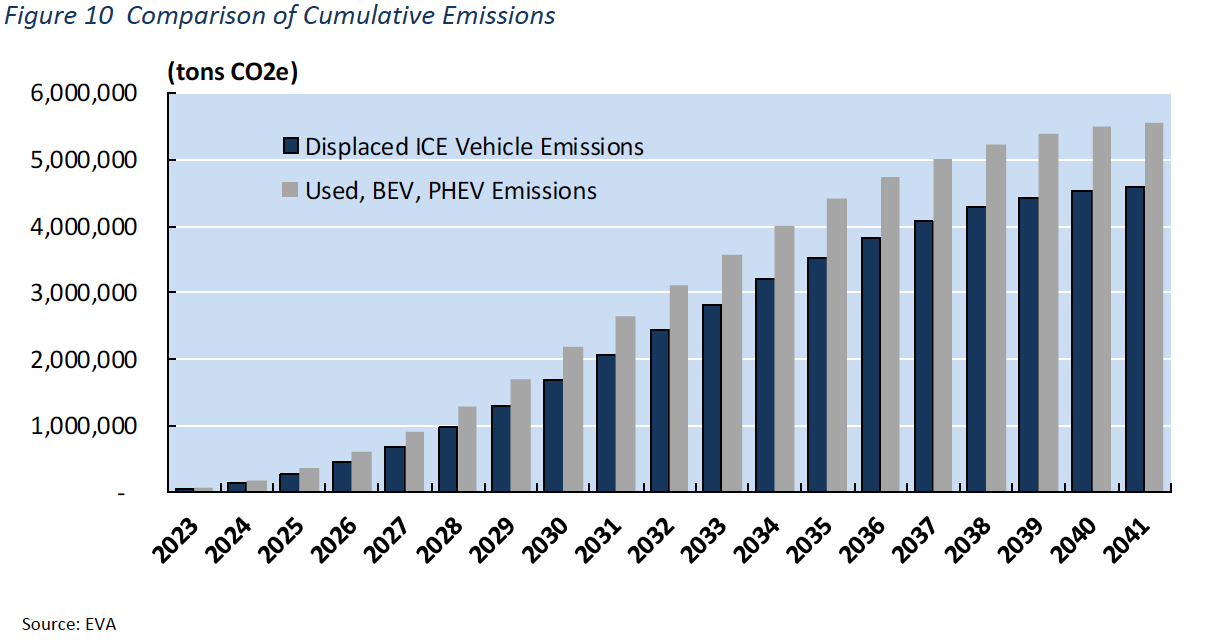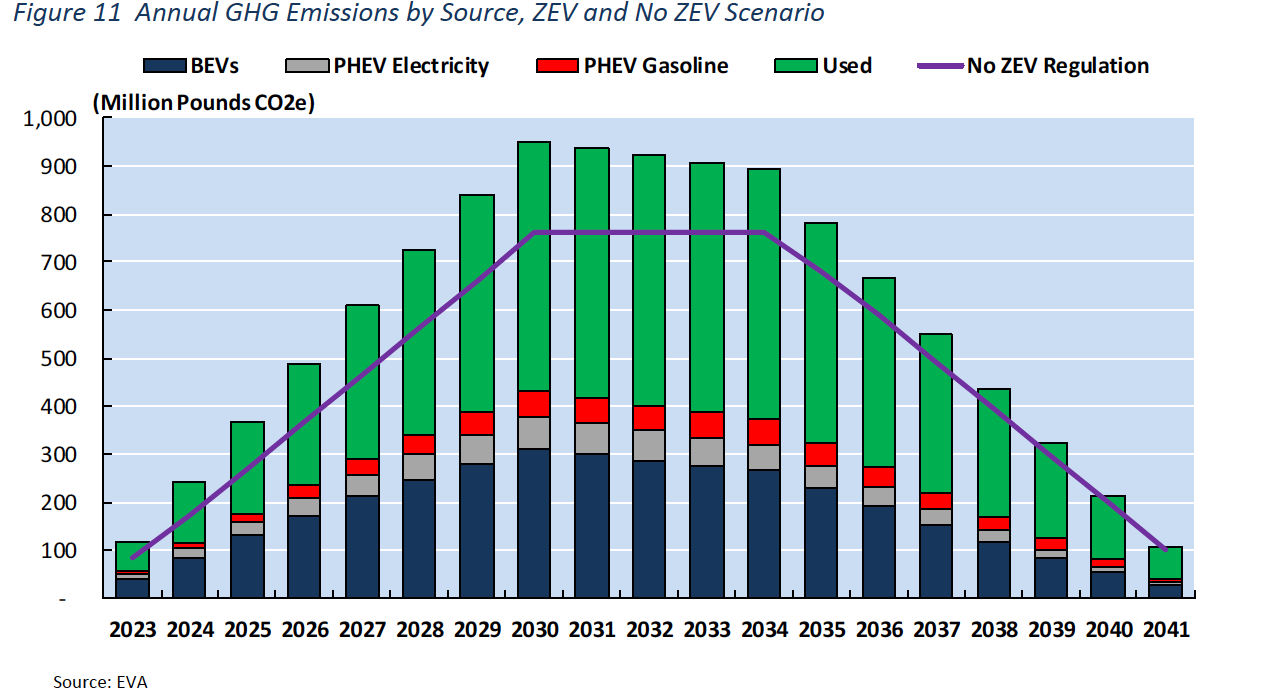Colorado’s Air Quality Control Commission (AQCC) is more than likely to adopt the Zero Emission Vehicle Mandate (ZEV) at its Friday, August 16th meeting (today). Not only will this put Colorado further under California’s thumb, it’s also likely to impact our state’s air quality and economy negatively.
The Freedom to Drive Coalition commissioned Energy Venture Analysis (EVA), a renowned energy consulting firm, to analyze the Colorado Department of Public Health and Environment’s (CDPHE) initial economic impact analysis of ZEV. Although EVA’s conclusions didn’t shock us, they may surprise the AQCC. We’ve been making similar points for months, and while we hope both elected and non-elected officials listen, that is simply a hope and a prayer.
One of EVA’s key findings is that adopting ZEV will likely increase Colorado’s auto emissions. To isolate the impacts of the mandate from the adopted Low Emission Vehicle rule, EVA’s model assumed ZEV would raise the price of all vehicles by $500. The result of this is a decrease in new cars being purchased, and people either retaining their older, higher emitting vehicles or buying used ones. Although mandating the purchasing of electric vehicles (EV) will remove a significant portion of gas-powered cars from the road, those remaining plus the new EVs will emit more emissions than the gas-powered ones taken off.

In fact, EVA found that if Colorado does not adopt ZEV, annual auto emissions would actually be lower: “The result of the analysis is that the cumulative emissions of the Used, BEV, and PHEV vehicles is greater than those displaced ICE vehicles.”

There is also the loss of gas tax revenue. Over the next 25 years, the Colorado Department of Transportation (CDOT) expects to face a $25 billion-dollar spending gap. Removing gas-powered vehicles from the roads – and ultimately from the pumps – means that CDOT’s funding issue will get worse. According to EVA, over ZEV’s lifespan, the state will lose $1.3 million a year. All this comes at a time when CDOT already cannot pay for needed maintenance, and the Democrat-controlled legislature is unwilling to provide additional funding for Colorado roads and bridges.
Electric Ratepayers should also expect an increase in their bills as energy providers rate base the construction costs of EV charging stations – an action allowed by Senate Bill 77 – and as new substations are built to accommodate the expected spike in electricity demand from charging EVs in residential areas. Just because CDPHE chose to omit these costs in its projections does not mean they don’t exist. EVA purports ratepayers can expect a rate increase of 7 percent as a result.
And then there are batteries. According to EVA, it is impossible to guarantee the cost of batteries will remain the same, or in the best-case scenario, decrease. Of course, the CDPHE assumed prices would fall, but considering China controls a significant portion of both the upstream and downstream battery supply chain, it cannot be assumed with the ongoing trade war that the number of batteries available today will remain constant or improve. If the Sino-American relationship continues to fray, the amount of EV batteries on the market could shrink and prices may skyrocket.
ZEV will also burden farmers, ranchers, and all taxpayers. This last legislative session, the General Assembly extended Colorado’s EV tax credits through 2025. If CDPHE’s estimate that 17,600 electric vehicles will be sold in 2025 is correct, and if all those purchasers cash in on Colorado’s electric vehicle tax credit, the state will forgo $88 million in tax revenue that year. Moreover, EVA predicts the mandate will increase the price diesel in addition to electricity rates. As a result, Colorado’s farming and ranching community may see annual energy expenditures increase by as much as $22.6 million.
Effectively forcing people to purchase electric vehicles is risky business. While Denver and Boulder may be able to afford it, the rest of the state cannot. EVA’s findings are certainly a cause for concern, as they show ZEV is fiscally and environmentally irresponsible for Colorado.
The information contained in this post can be found in the Energy Venture Analysis study linked here: Energy Venture Analysis – Evaluation of the Colorado Zero Emission Vehicle Regulation (ZEV)